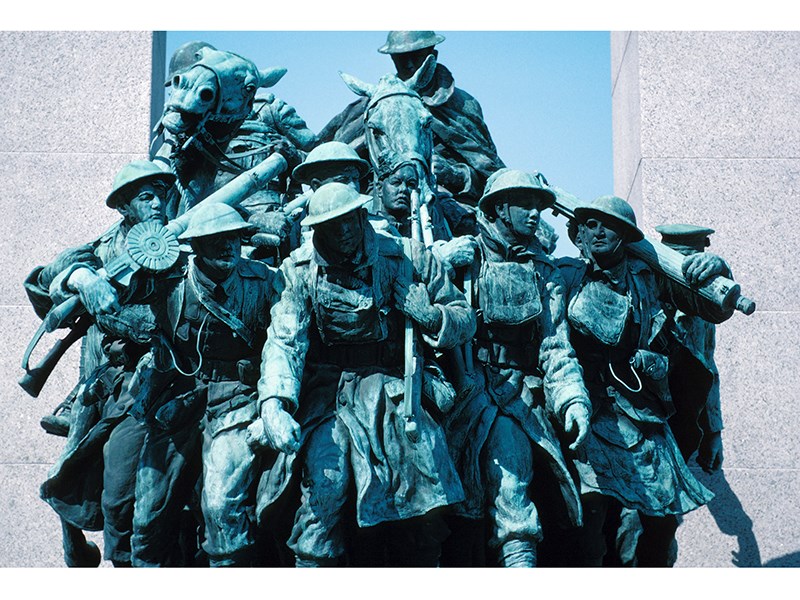We, as humans, are uniquely placed in the natural world with how we remember past events to inform our present and influence the future. Our brains encode, store, then retrieve information to help us navigate events toward the best possible outcome.
From a mental health perspective, the trauma attached to conflict, especially armed conflict between groups or nations, is immeasurably damaging to our goals of mental wellness generally. Trauma causes adrenaline to rush through our body and chisel negative memories into our amygdala, which is part of the limbic system in our brains.
Too often, the result of trauma is post traumatic stress disorder (PTSD) where intense, disturbing thoughts last long after the traumatic situation.
PTSD has been around since trauma has been around, which is, well, always. Societally, open conversation around mental health issues is a fairly recent development.
PTSD and related trauma are natural reactions to witnessing the horrors of war. War is our darkest and most violent instincts and urges on ugly display. Any sane person will be damaged to different degrees by the experience. The more we learn on the subject, the more that truth is exposed.
An evolutionary anthropologist might suggest war is residual tribal behaviour that we just cannot shake from our DNA after millennia of human experience. From the first stick carved to a sharp point to our current stockpile of nuclear bombs, which could end humanity a thousand times over, war is hyper-aggressive, violent group behaviour seared into our long-term memory.
Every point has a counterpoint and every idea is debatable. Everything is always changing.
In World War 1, which began in the summer of 1914, PTSD was known as shellshock and not really part of any medical conversations of the time. The trauma experienced by soldiers was often thought of as cowardice or a flaw in character. Nonetheless, since the American Civil War, which lasted between 1861 and 1865, physicians have been observing behaviour we now call PTSD.
On November 11, 1918, at 11 am, the eleventh hour of the eleventh day of the eleventh month, World War 1 ended. Today we remember those who were affected by the trauma of that war, and subsequently, all wars.
Societally and individually, from a mental wellness point of view, we need to acknowledge the day peace was made over 100 years ago.
Why do we need to remember?
As time marches on, everything changes. As the saying goes: “The only constant is change.”
Our ideas change and evolve just as the physical landscape which surrounds us continuously morphs into something different. We build on our past mistakes and our successes and, in many ways, advance to a better reality.
Although the American Psychiatric Association first officially diagnosed PTSD as a mental disorder in 1980, it has taken decades for the stigma of mental disorders to be dismantled and the topic brought into the light of day.
I have seen the idea and practice of Remembrance Day start to change since I wore a poppy on my coat when I was a kid in the 1970s.
I remember Remembrance Day having little to do with the mental fitness of veterans in the past. Ceremonies and rituals on November 11 did not address the disproportionality higher rates of suicide or substance abuse in veterans. It was tradition that the ceremonies and rituals mainly focused on militarism and patriotic sentiments.
Over the decades, technology has increased our understanding of how our mental state influences and interacts with our physical being. Those changes bring a new awareness and have had a ripple effect on how we do almost everything, including Remembrance Day.
We can promise never to forget the sacrifices and losses of our veterans. At the same time, we can use the same thoughts of love to acknowledge and remember not to repeat the actions which caused the almost irreparable hurt.
Remembrance Day, like everything in life, is always changing. We can honour and love by remembering past events, and influence a better future with peace and prosperity.
Robert Skender is a Powell River freelance writer and health commentator.



